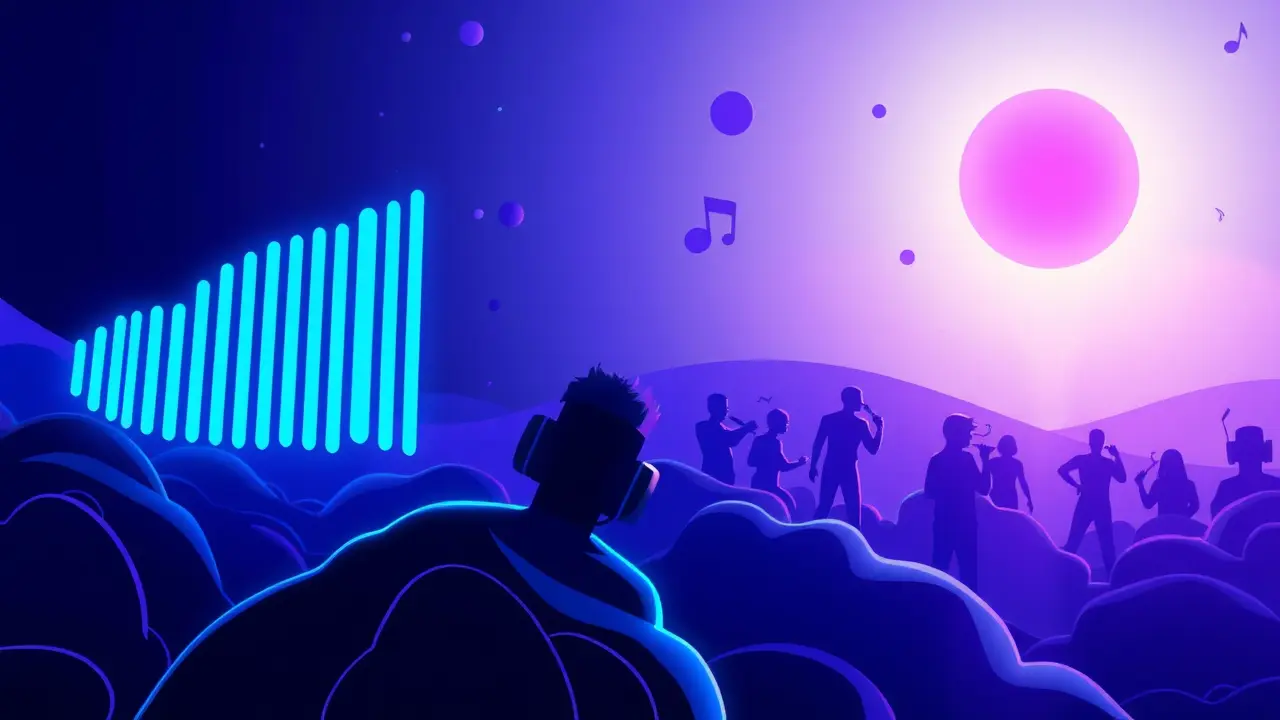SoundCloud adds social feature for seeing friends' liked songs.
In a move that feels less like a simple feature update and more like the opening chord of a long-awaited comeback tour, SoundCloud has finally leaned into the beat it was born to play: the social one. The platform, long revered as the dusty, independent record store of the internet where you could find the raw, unfiltered gems long before they hit the mainstream airwaves, is now rolling out a feature that lets you see the songs your friends are liking, effectively building playlists from the collective taste of your inner circle and the artists you stan.This isn't just an algorithm tweak; it's a fundamental shift back to music's oldest truth—that the best recommendations have always come from people, not machines. Remember the mixtape? That painstakingly curated cassette you made for a crush or a best friend, where every song sequence was a message, every fade-out a calculated emotional beat? SoundCloud’s new social listening feature is the digital reincarnation of that sacred ritual.It’s the antidote to the sterile, data-driven playlists of larger streaming services, which often feel like they were assembled by a robot with a mood ring. By pulling back the curtain on what your friends are actually vibing to in real-time, SoundCloud is betting that our social graphs are the ultimate discovery engine, a living, breathing source of credibility that no AI can replicate.For years, the platform was the go-to launchpad for artists like Chance the Rapper, Post Malone, and Billie Eilish, who built fervent, grassroots followings by sharing their work directly with a community that was hungry for something new and real. But as the streaming wars intensified, SoundCloud seemed to lose its rhythm, struggling to compete with the deep-pocketed playlists and podcast empires of Spotify and Apple Music.It became the place you went to find that unreleased demo or that fire remix from an up-and-coming producer, but not necessarily the place you stayed to listen for hours. This new feature is a bold attempt to change that, to rewire the platform’s very DNA from a passive archive into a dynamic social network where music is the currency of connection.It’s a gamble that recalls the early, heady days of Last. fm, where ‘scrobbling’ your listens felt like contributing to a grand, shared musical census, but updated for the TikTok era where social proof is everything.The potential here is immense; imagine stumbling upon a track your most musically astute friend liked two days ago, a track that hasn't yet bubbled up to the surface of the algorithmic mainstream, giving you that coveted feeling of being in the know. It turns listening from a solitary act into a communal experience, a silent nod across the digital divide that says, 'I hear it too.' Of course, the success of this will hinge entirely on execution and adoption. Will users embrace this new layer of social transparency, or will it feel like an invasion of their private listening habits? Will it create a richer, more textured discovery experience, or will it simply create echo chambers where our tastes are endlessly reflected back at us? The feature’s elegance lies in its simplicity—it doesn’t force you to build a new social network from scratch but leverages the one you already have, making music the thread that ties it all together.For the artists, this is a game-changer. A 'like' is no longer just a solitary data point; it becomes a potential viral spark, traveling through friend networks with an organic authenticity that paid promotion can never buy.It’s a return to the word-of-mouth hype that built hip-hop and electronic music scenes in basements and warehouse parties, now scaled to a global audience. In the grand symphony of streaming, where every platform is fighting for the conductor's baton, SoundCloud is not trying to out-orchestrate the others.Instead, it's picking up an old, trusted guitar and reminding everyone why we fell in love with music in the first place—not because a computer told us to, but because a friend pressed a pair of headphones on our ears and said, 'You have to hear this. ' It’s a feature that feels less like an update and more like a homecoming.
It’s quiet here...Start the conversation by leaving the first comment.
© 2025 Outpoll Service LTD. All rights reserved.
